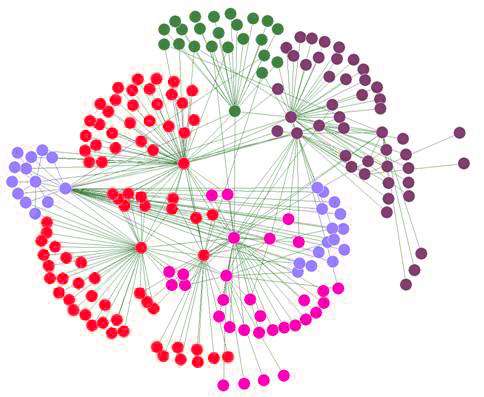April 21, 2015 report
Social networks may be exaggerating risk of news events

(Phys.org)—A trio of researchers affiliated with the Max Planck Institute in Germany has found, via a small study, that news information passed through a social network, via one person to another, becomes shorter and more biased depending on the number of people that it passes through. As Mehdi Moussaïd, Henry Brighton and Wolfgang Gaissmaier note in their paper published in Proceedings of the National Academy of Sciences, the advent of social networking as a means of news distribution may be having an unknown impact on people's perception or understanding of the news they hear about.
Most people have heard about or participated in the social game called Telephone, or Telegraph—it is where a group of people sit in a circle and then one person whispers something into the ear of a person sitting next to them—that person than whispers the same "story" to the person on their other side, and that person does likewise until the news has made its way all the way around the circle—at that point the last person reports the news out loud, and everybody laughs at how much the story has changed from what they heard and reported. In this new study, the researchers in Germany have taken the game a little further, by applying lessons learned to social networking as it applies to the Internet.
The researchers ran an experiment similar to the Telegraph game, using 105 volunteers they had divided into 15 groups. In so doing, they confirmed that as a bit of "news" (about the risks involved with an antibacterial agent) was passed from person to person, the facts became distorted in large part due to biases of the people passing along the information. They also found that the more people the message passed through, the shorter the message became and the more distorted or inaccurate it became as well. They suggest their findings, if looked at in terms of online social networking, could mean that real world news stories are being similarly changed as they are passed from person to person, which in turn suggests that people who get their news from social networks are likely getting a distorted version of what actually occurred, which could have implications for how people view the world and their place in it and possibly how they respond to what they hear.
More information: The amplification of risk in experimental diffusion chains, Mehdi Moussaïd, PNAS, DOI: 10.1073/pnas.1421883112
Abstract
Understanding how people form and revise their perception of risk is central to designing efficient risk communication methods, eliciting risk awareness, and avoiding unnecessary anxiety among the public. However, public responses to hazardous events such as climate change, contagious outbreaks, and terrorist threats are complex and difficult-to-anticipate phenomena. Although many psychological factors influencing risk perception have been identified in the past, it remains unclear how perceptions of risk change when propagated from one person to another and what impact the repeated social transmission of perceived risk has at the population scale. Here, we study the social dynamics of risk perception by analyzing how messages detailing the benefits and harms of a controversial antibacterial agent undergo change when passed from one person to the next in 10-subject experimental diffusion chains. Our analyses show that when messages are propagated through the diffusion chains, they tend to become shorter, gradually inaccurate, and increasingly dissimilar between chains. In contrast, the perception of risk is propagated with higher fidelity due to participants manipulating messages to fit their preconceptions, thereby influencing the judgments of subsequent participants. Computer simulations implementing this simple influence mechanism show that small judgment biases tend to become more extreme, even when the injected message contradicts preconceived risk judgments. Our results provide quantitative insights into the social amplification of risk perception, and can help policy makers better anticipate and manage the public response to emerging threats.
Journal information: Proceedings of the National Academy of Sciences
© 2015 Phys.org



















